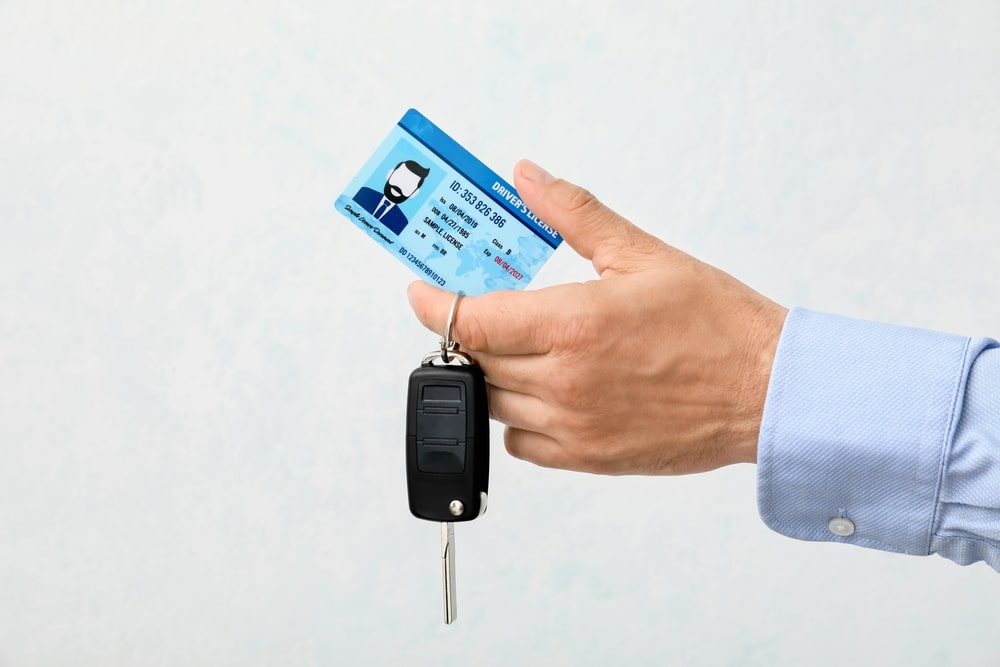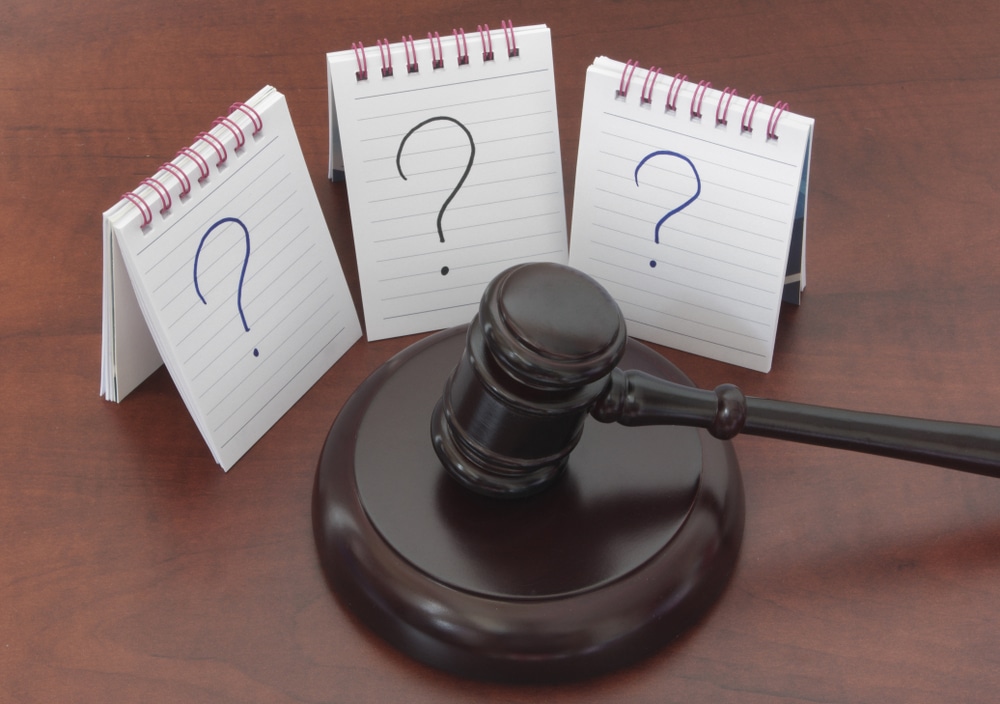
Blood Alcohol Content (BAC) test results form a critical cornerstone of any DUI case, serving as primary evidence of intoxication. These results typically come in multiple forms: preliminary breath test results from roadside testing, evidential breath test results from station-based machines, or blood test results from medical facilities. Each type of test has its own protocols, procedures, and potential points of challenge that a qualified attorney will need to examine.
Understanding the complete testing process, from initial calibration through final analysis, is crucial for building an effective defense. Critical details include the timing of the tests, the qualification of testing personnel, maintenance records of testing equipment, and the proper handling and storage of samples. Having these records available during your initial consultation allows an attorney to immediately identify potential procedural errors or technical issues that could affect your case.
License suspension notices contain crucial deadlines and procedural requirements that demand immediate attention. These documents outline your rights regarding administrative hearings, temporary driving privileges, and the steps required to contest the suspension. The notices typically include specific timeframes – often as short as 10 days – within which you must request an administrative hearing to challenge the suspension.
Most importantly, these notices contain information about the basis for suspension, whether it’s a failed BAC test or test refusal, which can significantly impact both the length of suspension and available defense strategies. Bringing these documents to your initial consultation allows an attorney to immediately identify and meet critical deadlines that could preserve your driving privileges.

Court documents provide the formal record of charges, court dates, and any special conditions imposed by the court. These papers may include the citation, complaint, arraignment information, bail conditions, and any preliminary hearing notices. Each document contains important information about the specific charges, the jurisdiction handling your case, and any immediate requirements or restrictions you must follow.
Having a complete set of court documents helps an attorney understand the exact nature of the charges, identify jurisdictional issues, and ensure compliance with all court-ordered conditions. These documents also help determine whether the proper procedures were followed in filing and serving the charges, which could affect the validity of the case.
Previous criminal records, particularly any prior DUI convictions or related offenses, significantly impact both the potential consequences and available defense strategies in your current case. Most jurisdictions impose enhanced penalties for repeat offenders, making it crucial to have accurate information about any prior convictions, including those from other states.
A complete criminal history allows an attorney to evaluate potential sentencing exposure and identify any prior convictions that might be challenged or excluded. This information also helps in developing appropriate defense strategies and negotiating with prosecutors, particularly when prior convictions might affect charging decisions or plea offerings.
When meeting with a potential DUI defense attorney, the initial case assessment should be thorough and specific to your situation. A qualified attorney will want to review all available documentation and ask detailed questions about the circumstances of your arrest, from the initial traffic stop through chemical testing and booking procedures. This assessment should identify both strengths and vulnerabilities in your case.
The attorney should provide an honest, realistic evaluation based on the specific facts of your case, local court tendencies, and their experience with similar cases. Watch for attorneys who offer detailed analysis rather than generic assurances, and who take time to explain how different aspects of your case might affect potential outcomes.

Discussions about defense strategies should be specific and tailored to your case’s unique circumstances. A competent DUI defense attorney will explain various potential approaches, from challenging the initial stop’s legality to questioning chemical test reliability or negotiating plea agreements. They should be able to outline both aggressive defense options and more conservative approaches, explaining the pros and cons of each.
The attorney should also discuss how different strategies might affect your license status, employment, and long-term record. Look for lawyers who can clearly explain technical defenses while relating them to your practical concerns and goals.
Understanding the range of possible outcomes helps you make informed decisions about your case. A reputable attorney will discuss best-case and worst-case scenarios, along with what they consider most likely based on their experience. This discussion should include potential penalties, license consequences, and collateral effects on employment or professional licensing.
The attorney should explain how different factors – such as BAC level, prior record, accident involvement, and cooperation with law enforcement – might influence outcomes. Look for specific examples from similar cases while understanding that past results don’t guarantee future outcomes.
Clear communication about case timelines helps you understand both immediate deadlines and the overall duration of your case. A thorough attorney will explain the sequence of events, from administrative hearings through court proceedings, including typical timeframes for each phase in your jurisdiction.
The discussion should cover factors that might extend or expedite the process, such as court backlogs, negotiation periods, or the need for expert witnesses. Understanding these timelines helps you make informed decisions about defense strategies and their impact on your life.
Establishing clear communication expectations is crucial for an effective attorney-client relationship. Discussion should cover preferred methods of contact, typical response times, and procedures for emergencies or urgent matters. A good attorney will explain how updates are provided and when you can expect regular case status reports.
Pay attention to whether the attorney will handle your case personally or delegate to other staff members. Understanding who will be your primary contact and how information flows within the firm helps prevent future frustration and ensures your questions are answered promptly.
Understanding legal fees and payment arrangements is crucial for making an informed decision about representation. A reputable attorney will provide clear, written explanations of their fee structure, whether flat fee or hourly, and exactly what services are included. They should also explain any additional costs you might incur, such as expert witness fees or court costs.
The discussion should cover payment options, including payment plans if available, and when different fees become due. Watch for attorneys who are transparent about their billing practices and willing to provide detailed fee agreements in writing.
Any attorney who guarantees specific outcomes in a DUI case should be viewed with extreme skepticism. DUI cases involve numerous variables beyond any lawyer’s control, including judge assignments, prosecutor decisions, and evidence quality. Ethical attorneys will discuss probable outcomes based on their experience while acknowledging that no results can be guaranteed.
Instead of guarantees, look for attorneys who provide realistic assessments based on case specifics and their experience with similar cases in your jurisdiction. They should be able to explain various possible outcomes and the factors that might influence them.
High-pressure sales tactics have no place in attorney selection. Be wary of lawyers who push for immediate retention decisions or use fear tactics to secure your business. Legitimate attorneys understand that choosing representation is an important decision requiring careful consideration.
Watch out for attorneys who create artificial urgency or make exaggerated claims about their competitors. While some aspects of DUI cases are time-sensitive, you should still have reasonable time to evaluate your options and make an informed decision.
The complexity of a DUI case significantly impacts its cost, with factors ranging from basic evidence challenges to intricate technical and constitutional issues. Cases involving accidents, injuries, or multiple offenses typically require more extensive preparation and resources. Technical challenges to blood alcohol testing, expert witness requirements, or constitutional issues can substantially increase both time requirements and costs.
Cases requiring specialized knowledge or extensive motion practice generally command higher fees due to the additional preparation and expertise needed. Understanding how your case’s specific circumstances affect costs helps in budgeting and evaluating fee proposals from different attorneys.
An attorney’s experience level directly correlates with their fee structure, reflecting years of practice, specialized training, and track record in DUI defense. More experienced attorneys typically command higher fees based on their proven expertise, established relationships with prosecutors and judges, and deeper understanding of successful defense strategies.
While experienced attorneys may charge more, their expertise can often lead to more efficient case handling and potentially better outcomes. The value of experience should be weighed against overall case complexity and potential consequences.
Legal fees vary significantly by geographic location, reflecting differences in local market conditions, court systems, and cost of living. Urban areas typically command higher rates than rural locations, while certain jurisdictions known for aggressive DUI prosecution may warrant higher fees due to the additional work required.
Local court practices and procedures can also impact costs, with some jurisdictions requiring more court appearances or having more complex administrative requirements. Understanding these geographic factors helps in evaluating whether quoted fees are reasonable for your area.
The probability of a case going to trial significantly impacts overall costs. Cases likely to proceed to trial require extensive preparation, including witness preparation, expert testimony, exhibit creation, and additional court time. Attorneys may adjust their fee structures based on the likelihood of trial, often requiring additional retainers or fees if a case proceeds beyond plea negotiations.
Trial preparation involves significantly more attorney time and resources than cases resolved through plea agreements. Understanding this cost differential helps in making informed decisions about case strategy and settlement options.
Expert witnesses can significantly impact case costs, particularly in cases involving challenged blood alcohol testing or accident reconstruction. These professionals charge their own fees for analysis, preparation, and testimony, which are typically separate from attorney fees.
The need for expert witnesses should be evaluated early in the case, with clear understanding of their costs and potential benefits. Expert testimony can be crucial for challenging evidence but must be weighed against the overall case strategy and budget.

A DUI defense attorney’s expertise encompasses multiple crucial areas: detailed knowledge of DUI laws and procedures, understanding of scientific evidence, familiarity with local courts, and experience with various defense strategies. Effective attorneys demonstrate their expertise through successful case histories, continued education in DUI defense, and active participation in professional organizations focused on DUI defense.
Their knowledge should extend beyond basic legal principles to include current developments in blood alcohol testing, field sobriety testing protocols, and constitutional law affecting DUI cases. Look for attorneys who can clearly explain complex technical and legal concepts while demonstrating how they apply to your specific situation.
DUI cases often hinge on technical details, from the science behind blood alcohol testing to the proper calibration and maintenance of testing equipment. An attorney’s grasp of these technical aspects can significantly impact their ability to challenge evidence effectively.
Look for attorneys who demonstrate clear understanding of both the scientific principles involved in DUI testing and the practical application of this knowledge in building defense strategies. They should be able to explain technical concepts in understandable terms while showing how technical challenges might benefit your case.
Effective DUI defense requires a strategic approach tailored to each case’s specific circumstances. Attorneys should demonstrate ability to analyze cases from multiple angles, identifying strongest defense opportunities while recognizing and planning for potential challenges. Their strategic planning should encompass both immediate tactical decisions and long-term case objectives.
Look for attorneys who explain their strategic thinking process and how they adapt strategies based on case developments. They should be able to outline multiple potential approaches while explaining the reasoning behind their recommended strategy.
An attorney’s track record provides tangible evidence of their ability to handle DUI cases effectively. While past results don’t guarantee future outcomes, a consistent history of favorable resolutions indicates skill and experience in DUI defense. Look for attorneys who can discuss their success rates in terms of specific types of cases and circumstances similar to yours.
Track record evaluation should include consideration of case dismissals, charge reductions, and favorable plea agreements, not just trial victories. A well-rounded track record shows ability to achieve positive outcomes through various strategies.
Initial Research and Referral Gathering
The initial research phase should cast a wide net, gathering information from multiple sources about potential attorneys and defense options. This process typically begins immediately after arrest, utilizing online resources, personal referrals, and professional organizations to identify qualified DUI defense attorneys in your area.
Creating a systematic approach to gathering and organizing information helps ensure thorough consideration of available options. Document key information about each potential attorney, including experience, specialization, and initial impressions from website reviews and referral sources.

Thorough verification of attorney credentials involves checking state bar standings, reviewing disciplinary histories, and confirming specialized certifications or training in DUI defense. This process should include reviewing professional memberships, continuing education commitments, and any published works or presentations related to DUI defense.
Documentation of verification efforts helps in making informed comparisons between potential attorneys. Pay particular attention to specialized training or certifications specifically related to DUI defense techniques and technologies.
Effective consultations require careful preparation, including organizing case documents, preparing specific questions, and documenting your case timeline. Schedule consultations with multiple attorneys to allow for meaningful comparisons of approaches, expertise, and communication styles.
Prepare detailed notes about your case circumstances, including timeline, witness information, and any unusual factors that might affect your defense. This preparation helps maximize the value of consultation time and ensures key questions are addressed.
Fee discussions should be detailed and documented, covering all potential costs and payment arrangements. Create standardized comparison sheets to evaluate different fee structures, including both immediate and potential future costs. Pay particular attention to how different attorneys handle additional expenses or trial fees.
Document specific fee structures, payment requirements, and what services are included or excluded. Understanding these details helps avoid future surprises and ensures realistic budgeting for your defense.
Contact provided references with specific questions about attorneys’ handling of similar cases. While maintaining appropriate confidentiality, seek insights about communication styles, case management, and overall satisfaction with representation. Document feedback systematically for comparison purposes.
Consider both professional and client references when available, as they offer different perspectives on attorney performance. Pay particular attention to references involving cases similar to yours in complexity or circumstances.
The final evaluation should synthesize all gathered information into a structured decision-making process. Create a detailed comparison matrix including factors such as experience, communication style, strategic approach, and cost considerations. Weight factors based on their importance to your specific situation.
Document the reasoning behind your final selection, including key factors that influenced your decision. This documentation can help maintain focus on important criteria and provide reference points for future evaluation of the attorney-client relationship.
The engagement letter represents the formal agreement between you and your chosen attorney, requiring careful review and understanding before signing. This document should clearly outline the scope of representation, fee structure, payment terms, and mutual responsibilities. Take time to read every section carefully, noting any areas that need clarification.
A comprehensive engagement letter should address specific aspects of DUI defense, including handling of administrative hearings, trial preparation costs, and circumstances that might require additional fees. Don’t hesitate to ask questions about any terms or conditions that seem unclear. Make sure all verbal agreements discussed during consultations are accurately reflected in the written document.
Establishing an organized system for case documentation from the beginning helps ensure efficient case management and effective communication with your attorney. Create a comprehensive file system, both physical and digital, that includes all relevant documents: police reports, chemical test results, license suspension notices, court documents, and correspondence with your attorney.
Document organization should follow a logical structure that allows quick access to needed information. Include a chronological log of all case-related events, communications, and deadlines. This organization helps both you and your attorney maintain clear understanding of case progression and ensures no important details are overlooked.
The initial strategy meeting sets the foundation for your defense approach and should be scheduled as soon as possible after retaining your attorney. Prepare for this meeting by organizing all case documentation, writing down questions and concerns, and being ready to provide detailed information about the circumstances of your arrest.
During this meeting, expect to review potential defense strategies, immediate deadlines, and next steps in detail. The attorney should outline their initial assessment of your case strengths and weaknesses, proposed investigation steps, and preliminary timeline for case progression.
Establishing clear communication protocols ensures effective ongoing interaction with your attorney’s office. Define preferred communication methods, expected response times, and procedures for urgent matters. Make sure you understand how routine updates will be provided and who to contact for different types of questions or concerns.
Document these communication protocols and keep relevant contact information easily accessible. Understanding when and how to communicate helps maintain efficient case management while respecting both your time and your attorney’s.
Effective consultations require targeted questions that reveal an attorney’s experience, approach, and suitability for your case. Ask about specific experience with cases similar to yours, success rates with particular judges or prosecutors, and detailed explanations of proposed defense strategies. Inquire about their approach to plea negotiations versus trial preparation and how they determine which path to pursue.
Beyond technical expertise, probe their communication style, availability, and case management approach. Understanding how they handle client updates, emergency situations, and routine questions helps assess their compatibility with your needs.
DUI defense fees can vary significantly by region, reflecting differences in local legal markets, case complexity, and court systems. When comparing fees, consider regional factors such as typical case duration, court appearance requirements, and local procedural complexities that might affect overall costs.
Create detailed comparisons that account for all potential costs, including expert witnesses, investigation expenses, and trial preparation. Understanding regional fee variations helps evaluate whether quoted fees are reasonable for your area and case type.
Understanding common defense strategies helps evaluate potential attorneys and participate meaningfully in your defense. Strategies might include challenging traffic stop validity, questioning chemical test accuracy, or negotiating plea agreements based on mitigating factors. Each approach carries different risks and potential benefits that should be thoroughly discussed.
Different attorneys may favor different strategic approaches based on their experience and local court dynamics. Understanding these variations helps assess which attorney’s approach best aligns with your case needs and goals.
DUI laws, procedures, and penalties vary significantly by state, making local expertise crucial. Consider state-specific factors such as:
Understanding your state’s specific requirements and options helps evaluate attorney expertise and develop appropriate defense strategies. Some states have unique programs or alternatives that might affect your case approach and outcome.
Selecting and working with a DUI defense attorney requires careful consideration of multiple factors and thorough preparation at each stage. Success depends not just on choosing the right attorney but also on establishing effective working relationships and maintaining organized case management throughout the process.
Remember that the relationship with your attorney is a partnership requiring active participation from both parties. Clear communication, organized documentation, and prompt response to requests help ensure the best possible outcome for your case. Regular review of case progress and ongoing evaluation of the attorney-client relationship helps maintain effective defense management throughout the process.
Ultimately, the goal is to ensure both competent legal representation and a manageable process for addressing your DUI charges. Taking time to thoroughly evaluate options, establish clear procedures, and maintain organized case management helps achieve this goal while reducing stress during a challenging time.
At DUI 101, our mission is to empower you with the knowledge needed to make informed decisions during this challenging time. Explore our articles and guides to better understand your situation and the steps ahead.
© 2024 Chapman SEO LLC. This website is for educational and informational purposes only. All content is created using AI technology and maintained by non-lawyers and should not be considered legal advice. The information provided is general in nature and may not be suitable for your specific situation. Always consult with a qualified legal professional for advice regarding your individual circumstances. We do not create attorney-client relationships through this website. By using this site, you acknowledge that you have read and understand these terms.